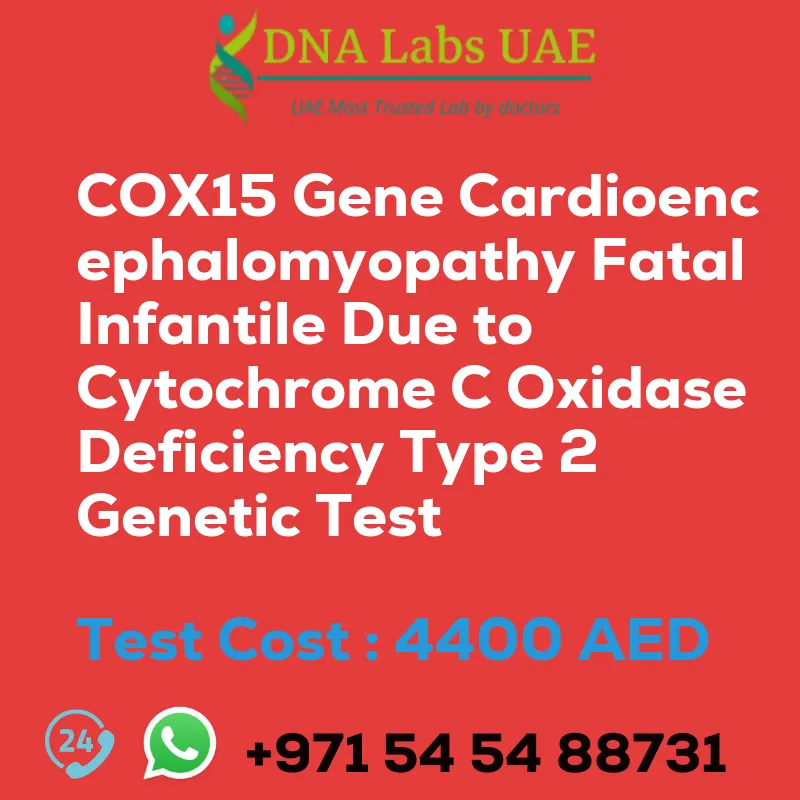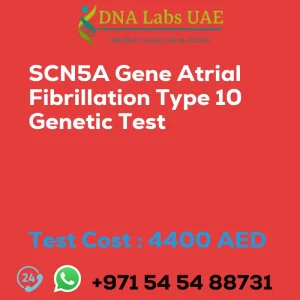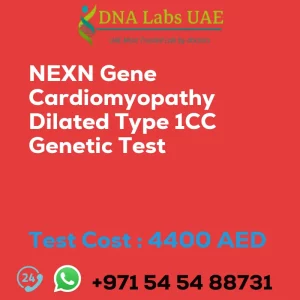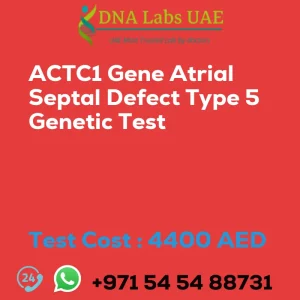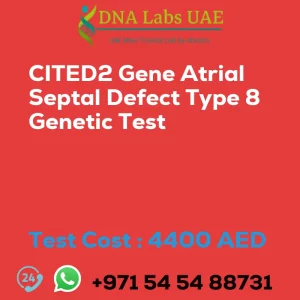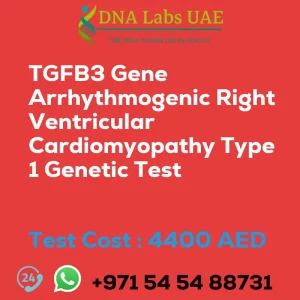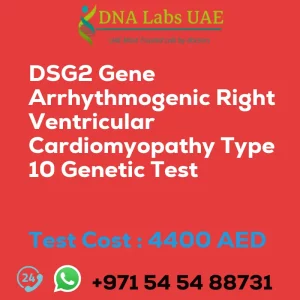COX15 Gene Cardioencephalomyopathy Fatal Infantile Genetic Test
Welcome to DNA Labs UAE, where we offer the COX15 Gene Cardioencephalomyopathy fatal infantile due to cytochrome c oxidase deficiency type 2 Genetic Test. This test is designed to diagnose and provide information about a rare genetic disorder characterized by a deficiency in the enzyme cytochrome c oxidase (COX), which is crucial for the proper function of mitochondria in cells.
Test Details
The COX15 gene cardioencephalomyopathy, fatal infantile, due to cytochrome c oxidase deficiency type 2 Genetic Test utilizes NGS technology, which stands for next-generation sequencing. This high-throughput method allows for the simultaneous analysis of multiple genes. In the context of COX15 gene cardioencephalomyopathy, NGS genetic testing can identify mutations or variants in the COX15 gene associated with the disorder.
Components and Price
- Test Name: COX15 Gene Cardioencephalomyopathy fatal infantile due to cytochrome c oxidase deficiency type 2 Genetic Test
- Price: 4400.0 AED
- Sample Condition: Blood or Extracted DNA or One drop Blood on FTA Card
- Report Delivery: 3 to 4 Weeks
- Method: NGS Technology
- Test Type: Cardiovascular Pneumology Disorders
- Doctor: Cardiologist
- Test Department: Genetics
Pre Test Information
Before undergoing the COX15 Gene Cardioencephalomyopathy fatal infantile due to cytochrome c oxidase deficiency type 2 Genetic Test, it is important to provide the clinical history of the patient. Additionally, a genetic counseling session will be conducted to draw a pedigree chart of family members affected with COX15 Gene Cardioencephalomyopathy, fatal infantile, due to cytochrome c oxidase deficiency type 2 NGS Genetic DNA Test gene COX15.
Importance of the Test
COX15 gene cardioencephalomyopathy, fatal infantile, due to cytochrome c oxidase deficiency type 2 is a rare genetic disorder that affects the heart and brain. The deficiency in the enzyme cytochrome c oxidase can lead to a wide range of symptoms. By analyzing the patient’s DNA, the NGS genetic testing can confirm a diagnosis, identify the specific genetic mutation causing the disorder, and provide information about the inheritance pattern. This information is crucial for understanding the disease, predicting the prognosis, and guiding treatment options or genetic counseling for affected individuals and their families.
| Test Name | COX15 Gene Cardioencephalomyopathy fatal infantile due to cytochrome c oxidase deficiency type 2 Genetic Test |
|---|---|
| Components | |
| Price | 4400.0 AED |
| Sample Condition | Blood or Extracted DNA or One drop Blood on FTA Card |
| Report Delivery | 3 to 4 Weeks |
| Method | NGS Technology |
| Test type | Cardiovascular Pneumology Disorders |
| Doctor | Cardiologist |
| Test Department: | Genetics |
| Pre Test Information | Clinical History of Patient who is going for COX15 Gene Cardioencephalomyopathy, fatal infantile, due to cytochrome c oxidase deficiency type 2 NGS Genetic DNA Test. A Genetic Counselling session to draw a pedigree chart of family members affected with COX15 Gene Cardioencephalomyopathy, fatal infantile, due to cytochrome c oxidase deficiency type 2 NGS Genetic DNA Test gene COX15 |
| Test Details |
COX15 gene cardioencephalomyopathy, fatal infantile, due to cytochrome c oxidase deficiency type 2 is a rare genetic disorder characterized by a deficiency in the enzyme cytochrome c oxidase (COX), which is essential for the proper function of mitochondria in cells. This deficiency leads to a wide range of symptoms affecting the heart and brain. NGS genetic testing refers to next-generation sequencing, a high-throughput method used to analyze multiple genes simultaneously. In the context of COX15 gene cardioencephalomyopathy, NGS genetic testing can be used to identify mutations or variants in the COX15 gene that are associated with the disorder. By analyzing the patient’s DNA, NGS genetic testing can help confirm a diagnosis, identify the specific genetic mutation causing the disorder, and provide information about the inheritance pattern. This information can be crucial for understanding the disease, predicting the prognosis, and potentially guiding treatment options or genetic counseling for affected individuals and their families. |

